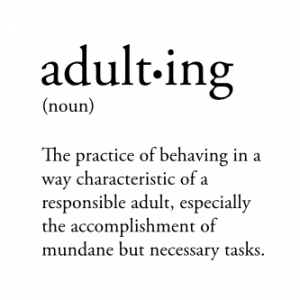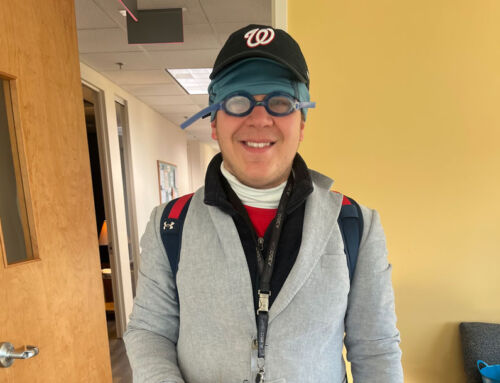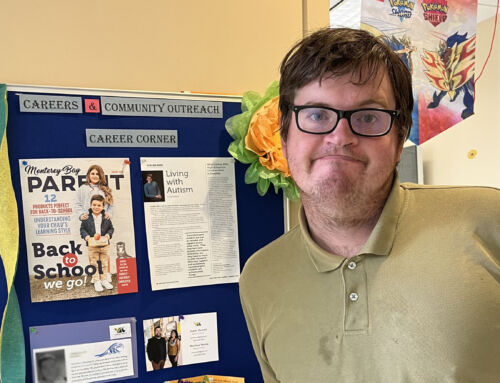By Victoria Fry, Independent Living Skills & Financial Coordinator CLE Costa Mesa
Adulting
For some, age is a number with an automatic and mandatory graduation. For most, age develops over time with experience and opportunity. This idea of internal age is becoming increasingly common for young people today because schools often fail to teach students the basic life skills needed to thrive after they leave their parents’ homes. Take a look at these statistics:
- 30% of college-age students can’t boil an egg
- 52% of teens can’t change a tire
- 70% of young people can’t sew on a button
- There are 38% fewer home economics classes than 10 years ago
The result:

Day to day acts of adulting can look like:
- Purchasing fresh cut flowers, and Googling how to take care of them
- Receiving an unexpected bill and investigating why it was sent to you
- Shredding financial information to protect your identity
- Extra Credit: Recycle the shredded paper
Everyday stories of adulting induce a collective sigh in millennial culture and are important for acknowledging the gap between achievement, expectation, and reality. Growing up is hard, and the challenge isn’t rooted in grit, character, or ownership – it’s in resources and opportunity. Young people today have been protected more than they’ve been prepared, and it’s time that we take a different approach.
Bridging the gap: Independent Living Skills
One support available for people who are learning how to successfully adult is Independent Living Skills Training (frequently abbreviated to ILS). Typically, an Independent Living Skills Instructor will create teachable moments in the home or community which ultimately support the learning of skill sets needed to navigate life with minimized parental involvement. Instruction is person-centered and can occur in individualized and group settings.
ILS support is diverse and can teach young people how to successfully adult in the following areas:
| Household Living | Community Engagement | Time Management | Financial |
|---|---|---|---|
| Cooking | Accessing resources | Scheduling | Bill payment |
| Cleaning | Locating hot spots | Preparing to leave | Budgeting |
| Organizing | Finding your way around | Setting alarms | Money safety |
| Decluttering | Meeting friends | Prioritizing tasks | Need vs. want |
The key to successful support is requiring the learner to identify skillsets that they want to develop. Deciding what to learn can be challenging for most individuals, but having control over instruction is an empowering experience that provides meaning and ownership to learning.
Empowering the learner is vital to the success of any Independent Living Skills instruction because the learning is designed to directly improve the learner’s quality of living, and how to do that differs for each person.
Examples of common skill sets that are meaningful to our population:
- Learning how to access information using online platforms, like Google or Yelp
- Saving money for a large purchase, such as a new gaming console or trip
- Learning how to travel to local hotspots, such as a concert venue or stadium
- Joining a local social group with peers who share common interests
- Identifying how to protect one’s online social media accounts
- Understanding the rights and responsibilities of accommodations
After identifying what’s important to the learner, ask the learner to show you the steps that they currently take to reach the goal, and support them in identifying what they need to do to reach success. Identifying the challenge can be done directly or indirectly. Check out the case scenario below:
- Celebrate: Fantastic job setting the table, Lucy. You did a great job remembering to give silverware, a napkin, and a plate to each guest.
- Prompt: What will they need if they get thirsty? Right, a cup. How many will we need? Yes, one for each guest.
- Show: Let’s see what the set table looks like. Each guest has a plate, silverware, a napkin, and a water cup. Great work!
- Assess: Maybe next time I come over you can set the table and we can eat some lunch? Let me know.
If the learner sets the table independently and forgets another tabletop item, it’s just another adventure in adulting and another opportunity to pick up and try again in a new way. Remember, learning how to adult takes time, and our goal is to prepare the learner for these scenarios so that when they have bigger hiccups, they are fearless in problem-solving.

J. K. Rowling knows best
As a learner in the modern world, developing refined adulting skills is a #struggle no matter how old you are. The challenge isn’t linked to your fight, spirit or work ethic, it’s hard for everyone for different reasons. To best bridge the gap, we need to fearlessly identify the root of the challenge, and view failure as an opportunity to become better prepared. Keep in mind, we’re all graduating into new life phases and learning new skills as we graduate. As human beings, we live, we laugh, and we make better mistakes next time.








